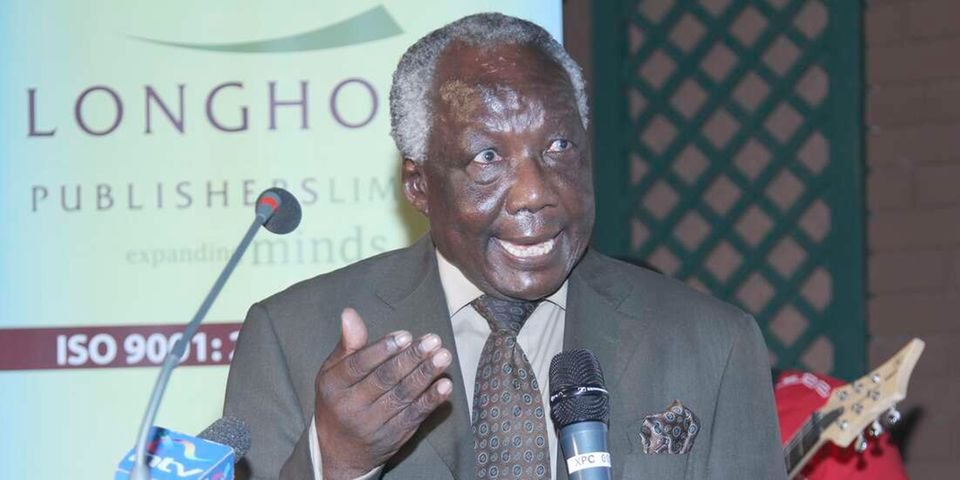There has been an outpouring of grief following the death on April 27, 2021, of one of Kenya’s finest journalists, Philip Ochieng.
Since the mid-1960s, Philip churned out a huge body of journalistic writing, mainly through his popular weekly columns in the Nation and other newspapers that he worked for in Nairobi, Kampala and Dar es Salaam. But he would crown it with two seminal books, the Kenyatta Succession, which he co-authored with fellow journalist Joseph Karimi, and I Accuse the Press.
His pen was lyrical, but was also as sharp as a surgeon’s scalpel. He was eccentric and did not suffer fools, but at the same time, he was a warm and loving personality, who cared about the plight of others.
Ironically, Ochieng’s speech was not as fluent as his writing. He was a stammerer and his writing was apparently a natural compensation for this stark shortcoming.
To Ochieng, what mattered most in his life was reading and writing and he must have spent a fortune on books, building what has been described as a collection that would shame some institutions.
At 83, Ochieng had lived a full life, which was characterised by a lot of travel. It all started with him hopping onto a plane at the old Embakasi Airport in Nairobi in 1959, as a beneficiary of the famous Tom Mboya Airlifts of Kenyans to study in American universities.
He headed for Chicago and joined university to study English and Literature, but never completed his course. His stay in America was more about partying and sampling the best the land of opportunity could provide. Like his friend Barack Obama Senior, who got a son with a white woman, Ochieng was also rewarded with a daughter, Juliet, who, incidentally, is also a writer.
Ochieng would later study in France and also lived in East and West Germany during the Cold War period. Back home, his journalistic career started in the mid-1960s with Nation Newspapers in Nairobi. He also worked in Kampala for a short while after the 1976 Entebbe Raid, when, unlike other Kenyans who cheered as Israeli commandoes struck deep in Uganda, he was incensed with the violation of the country’s territorial integrity.
He derogatively dismissed his own country and people as “a nation of sheep” for the tacit support the leadership had accorded the Israelis.
He would soon after be on the move after falling out with his Ugandan hosts. His next stop was Dar es Salaam, where he had perhaps his best time for intellectual growth. While in the city on the shores of Indian Ocean, he rubbed shoulders with some of the greatest scholars on the Ubungo Campus of the massive University of Dar es Salaam.
It was at this time that Walter Rodney, the author of How Europe Underdeveloped Africa, historian Prof Issa Shivji and others ruled the roost.
This slightly built man, who stood at probably about 5.8 feet, was a sharp dresser. He loved the finest three piece-suits, often boasting the best of the exquisitely tailored Savile Row products. He spent a lot of money on books, but also on clothes. In the early days, the polo neck was his main identity. He also loved suspenders and designer shoes.
Ochieng enjoyed his whisky in those days, but it would be after a day’s toil that he went for his daily evening tipple. In the mid-1980s, he had stopped smoking but remained a connoisseur of the best whisky that he could lay his hands on.
The flamboyant writer was also a soccer fanatic, who loved Gor Mahia Football Club. He would never miss a match in Nairobi involving Gor and their archrivals, AFC Leopards.
As Abaluhya Football Club, there was a deep ethnic rivalry on the pitch with Gor, which drew most of its support from the Luo community. Ochieng wrote glowingly about the exploits of K’ogalo, and the talents of such great players as midfield maestro Allan Thigo, striker Peter Dawo and winger Nahashon Oluoch ‘Lule’.
He bestrode the practice of journalism in Kenyan and the entire East African region like a colossus.
Whereas journalists are generally perceived as unkempt and rowdy, he cut the figure of a smart and cultured personality.
His stint in the protocol section of the Ministry of Foreign Affairs in Kenya, where he rubbed shoulders with diplomats and his tour of duty with the United Nations in New York, certainly played a role in enhancing his sartorial elegance.
Ochieng was a total package with the finest contributions having been imbibed from across the world. But his solid legacy will live on as a mercurial wordsmith, who enriched the practice of journalism with wit, knowledge and versatility.
khagunda@gmail.com
